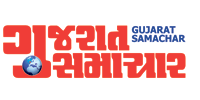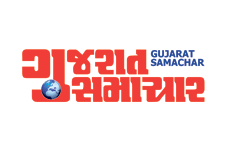The Covid-19 pandemic has shone a light on stories of inspiring businesses and individuals - those that have gone beyond the normal call of duty to make a difference. When the lockdown was announced in March 2020, many businesses had to down their shutters altogether or change the way they operated. We’ve seen and heard about a tremendous effort from businesses to help their employees, customers, and the wider community, with monetary donations, essentials and PPE supplies.
On 4 July businesses reopened to new guidelines issued by the UK Government. They are now operating under a ‘new normal’ and doing so safely and efficiently.
Supporting business community by pivoting into products applicable to the situation
Jigna Varu is the Chief Commercial Officer (CCO), Business Partner and shareholder of the global freshness ingredient brand Micro-Fresh® International, based in Leicester. They have ten international offices across eight countries and are looking to open offices in Japan, Australia and Indonesia by the end of the year. Byron Dixon OBE is the Founder and CEO of Micro-Fresh® International.
Born in London, Jigna attended University of Roehampton in Middlesex and studied Biomedical Science. She joined Micro-Fresh® in 2013 as part-time Client Services Assistant and quickly established her position within the company. Jigna now overlooks sales, marketing, research, development and finance at an international level.
Originally developed in 2006 as an anti-mould agent, Micro-Fresh® is an award-winning technology designed to give long lasting freshness to homeware, footwear and a variety of other products and is hypoallergenic. It now features in products offered by over fifty retailers including John Lewis, M&S and Debenhams, as well as supermarkets such as Tesco and Sainsbury’s.
During the lockdown, when businesses could not continue as usual, so Micro-Fresh® decided to support the business community by pivoting into products applicable to the situation.
Within 24 hours they had formulated their version of hand sanitising spray for hands and surfaces like door handles. These proved popular as Micro-Fresh® is a trusted brand in hygiene. All the operations were in-house, and they kept the team on full salary throughout the pandemic. They also had to hire more people to cope with the work pressure. They are currently looking to recruit personnel in their sales and marketing team.
Jigna told us, “When the pandemic hit, we did not furlough anyone. We paid full salaries and many people worked from home. We were meant to assess the situation at the end of three months. As we have got busier than before we have carried on paying existing staff and are recruiting more people.
“Luckily, we have enough space to practice social distancing measures. We work in different rooms and stores which have protective barriers. We are complying with all the UK Government rules, and regional staff were working from home. Fortunately, we have very good relationship with other partners in the area. As a community we supported each other.”
They donated the sanitisers to hospitals, care homes and many charities around the local area. Micro-Fresh® was acutely aware of the needs of the frontline staff who were fighting for their own safety and they did not want them to be in a compromising position. Jigna added, “We made a donation of 15% free sanitisers on each order directly to the NHS.”
With the motto of further helping the community they progressed to making their own facemasks. “Micro-Fresh® as a brand is so trusted among retailers, that we were constantly receiving enquiries about personal protective products,” she said. “Since we were in the textile market already, we started manufacturing masks. Our masks are double layered, have N95 filtering in them and they are treated with Micro-Fresh® - so they have many levels of protection. They are durable, reusable and can last up to 100 washes, so with a weekly wash it can last for up to two years! We are all about sustainability and innovation.”
Due to growing demand, Micro-Fresh® also developed Sanitaze, a portable fogging machine, to deposit a micron-thin layer of Micro-Fresh® over all surfaces, offering antibacterial protection in between cleaning. “Initially Micro-Fresh® was only anti-fungal. But when testing was later done, we found it to be anti-bacterial as well,” said Jigna. “It can protect against pathogens such as MRSA, E-coli, Salmonella and Listeria. Now that we have tested against coronavirus and viruses this gives a new dimension to the Micro-Fresh® brand.
“As retailers and offices return to work the challenge now is to ensure that workplaces are as hygienic as possible. We were asked about the possibility of having Micro-Fresh® on as many surfaces as feasible. So, we developed the Micro-Fresh® Sanitaze, a portable fogging machine to deposit a micron-thin layer of Micro-Fresh® over all surfaces, thus offering antibacterial protection in between cleaning. The Micro-Fresh® solution in the form of fog kills any virus or bacteria that is in the air, and the Micro-Fresh® film prevents anything from being transferred from surfaces to hands and vice versa.
“Restaurants, gyms, salons and several other businesses have shown interest. Within two weeks of speaking to local people about Sanitaze, we had to set up a separate entity within the business.”
They have also restructured their office, in accordance with the UK Government guidelines, as employees returned to work. An enthusiastic Jigna added, “We have kept our team involved at every step and have enquired about their needs at every stage. We have made sure that they have sanitisers and masks. We have also installed plastic screens around the desks, where these were requested. For those who wish to work from office, we have offered everything that will give them peace of mind.
“On the production side, we are restricting access to authorised personnel and have discontinued factory visits which are popular with our clients.”
Building a structure of care
Nitin Palan MBE was born in Uganda and his family emigrated to the UK when he was 16 years old. He qualified as a Chartered Accountant and built a travel business, Golden Tours, with wife Kamu, which has a turnover of £57 million. His company Golden Tours employs more than 250 staff in the UK and 80 in India.
The company’s blue hop-on hop-off buses are a common site around London’s tourist hotspots. He is also an inter-faith leader for the BAPS Swaminarayan temple and the Chairman of Golden Tours Foundation. It is this trilogy of education, heritage and inter-faith relations that inspired Nitin to establish the Palan Foundation in 2013, which has given away over £4 million to good causes.
Nitin believes that tourism can play a very important role in bringing better understanding between people. He stepped in to help the community when the lockdown forced his offices to shut. For Nitin the welfare of his staff was paramount, and he used the UK Government’s furlough scheme to keep all his employees on the books.
Speaking to Gujarat Samachar, he said, “My duty towards the community includes my responsibility towards my staff. So, we created a food bank within the office for all our staff, where they could come in and eat. We also created a system of advice and consultation if any of our staff were stressed or had financial problems. They could call our staff in HR who would support them through their emotional or financial difficulties. We built a system of care. We held fortnightly webinars. We also invited our drivers to come along every Thursday and understand what the future looked like. As the UK Government allowed people to work part-time, we introduced them to jobs available outside of Golden Tours.”
Besides making financial contributions to temples and other organisations who distributed food and essentials to vulnerable people, Nitin also helped hospital workers with PPEs and transport. “We partnered with Warner Brothers and provided three double-decker buses to take nurses and doctors to three hospitals including the Watford General Hospital,” he said. “The buses did rounds and transferred frontline workers between these hospitals which were sharing resources. When the buses were on duty, as the frontline workers boarded them, the drivers got off the bus, to maintain social distance. Nobody was allowed to sit on the lower deck, so that our drivers remained safe. “We also gave out around 50,000 plastic protective gowns to nurses and doctors in Southampton General Hospital.”
Normally in July, Golden Tours would run 60 buses per day in London. But in the last three months, they had to return £6mn to customers who had made advance bookings. On 4 July, as they resumed service, there was only one bus on the road. “We needed to start with something. It is always important for people to know that you exist. It encourages people to come out. If there is a demand, in August, we can have 10 buses and in September we may even have up to 20 buses!”
However, keeping the passengers’ safety in mind, the company started using fumigation equipment, cleaning the buses regularly. Before any tourist can board the bus, their temperature is checked using a non-contact infrared thermometer. “Inside the bus we are required by Government guidelines to keep a quarter of the seats empty,” said Nitin. “Everybody sits on the upper deck and are requested to clean their hands before they get in. They are provided with free masks and gloves to wear.”
“In our St James Park office, in keeping with the guidelines, we are asking only those staff to come in, who can’t work from home. 95% of our staff are happy to work from home. We have a webinar every Monday to keep in touch with all the staff. For the first time in three months, on Friday 26 June, we had a management meeting in our office which staff attended in person. These meetings now happen fortnightly. But we ensure that the management staff only come in by cars and we pay for their journey and parking.”
In normal times, the tourism industry in the UK is reportedly worth £127bn per year, according to VisitBritain. It supports 200,000 small and medium businesses (SMEs), employing 3.1 million people, which is around 8% of the UK workforce, peaking at 35% in some areas. During the lockdown, 80% of those employees were furloughed, which is the highest proportion in any UK industry sector.
But Nitin is optimistic for the future. He added with a dash of hope, “It will take some time. But I am positive, that we will come around, sooner or later.”
To read about more inspiring GREAT stories visit https:// www.greatbritaincampaign.com/ inspirations




